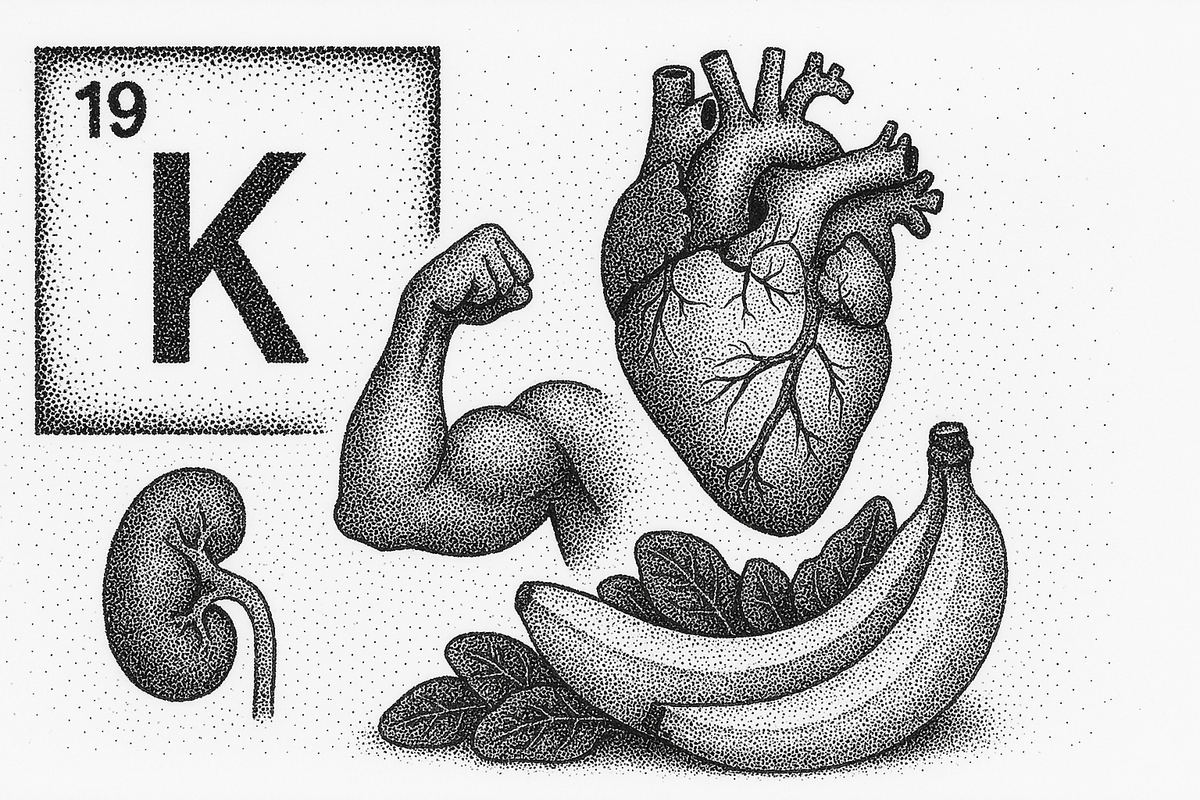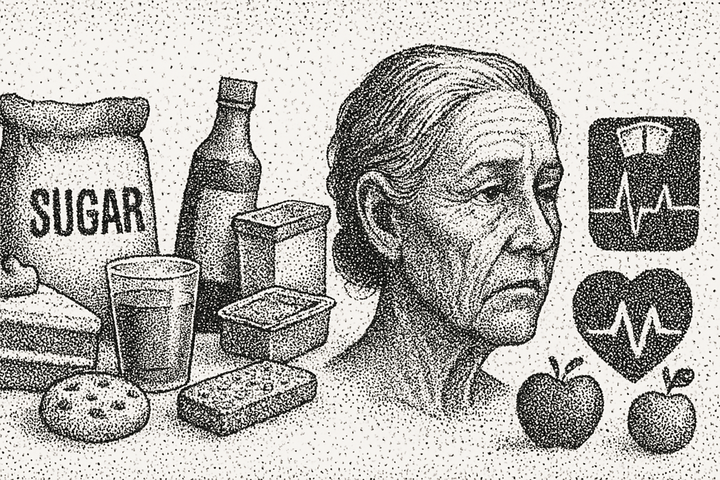Are You Getting Enough Potassium? The Essential Mineral Explained

Potassium, a chemical element with the symbol K and atomic number 19, is classified as an alkali metal and functions as an electrolyte in the body. It is predominantly found in ionic form within cells, with approximately 98% located intracellularly, 80% of which is in muscle cells, and the remainder in bones, liver, and red blood cells (Potassium). As an electrolyte, it dissolves in water to produce positively charged ions, enabling it to conduct electricity, which is vital for cellular processes.
The body uses potassium for maintaining intracellular fluid volume and transmembrane electrochemical balance, which are crucial for nerve signal transmission and muscle contractions, including the heartbeat. It also supports enzyme activation involved in protein and carbohydrate metabolism, ensuring cellular function and energy production (Potassium Health Professional Fact Sheet).
Health Benefits
Research suggests potassium offers significant health benefits, particularly in cardiovascular and bone health. High potassium intake is linked to lower blood pressure, as it helps relax blood vessels and excrete sodium, counteracting the hypertensive effects of high sodium diets (Potassium). Studies, such as one in the Archives of Internal Medicine, found that diets high in potassium and low in sodium reduce the risk of death from heart attacks and other causes (Potassium). Additionally, potassium may reduce the risk of stroke and support bone health by minimizing calcium loss through urine, potentially preventing osteoporosis (What Does Potassium Do for Your Body? Uses and Benefits).
Recommended Daily Intake and American Intake
The National Academies of Sciences, Engineering, and Medicine (NASEM) updated the Adequate Intakes (AIs) for potassium in 2019, as there was insufficient data for an Estimated Average Requirement (EAR). The AIs are:
(Potassium Health Professional Fact Sheet).
However, many Americans do not meet these recommendations. Data from the National Health and Nutrition Examination Survey (NHANES) 2017-2018 indicates an average daily potassium intake of 2,496 mg for the population aged 2 years and older, with males 12 years and older having significantly higher intakes than females, though adjusted for energy intake, females show higher potassium densities (Potassium Intake of the U.S. Population). Earlier data from NHANES 2013-2016 shows adult men consuming an average of 2,988 mg and women 2,323 mg, both below the AIs of 3,400 mg and 2,600 mg, respectively (Potassium Fact Sheet). This shortfall is attributed to the prevalence of processed foods, which are low in potassium and high in sodium, with Americans averaging about 3,300 mg of sodium daily compared to the needed higher potassium intake (Potassium).
Dietary Sources and Potassium Content
To address this deficiency, incorporating potassium-rich foods into the diet is essential. Below is a table of common foods and their approximate potassium content per serving, based on reliable sources like the Office of Dietary Supplements and Healthline:
These values are approximate and can vary based on preparation methods and specific varieties. Fruits, vegetables, dairy, and legumes are particularly rich sources, with additional contributions from whole grains like whole grain bread (120 mg per 2 slices) and oats (Food Sources of Potassium). The 2020-2025 Dietary Guidelines for Americans identify potassium as a nutrient of concern, emphasizing the need for dietary shifts toward these nutrient-dense foods (Potassium Intake of the U.S. Population).
Practical Tips for Increasing Intake
Given the intake shortfall, practical strategies include:
- Eating more fruits and vegetables, such as bananas, avocados, and spinach, which are naturally high in potassium.
- Choosing whole grains over refined, and incorporating legumes like beans and lentils into meals.
- Limiting processed foods, which are typically low in potassium and high in sodium, to improve the potassium-to-sodium ratio.
- Considering dairy products like milk and yogurt, which also contribute to potassium intake.
In conclusion, potassium is vital for health, and addressing the intake gap through dietary choices can significantly enhance well-being. For personalized advice, especially for those with medical conditions like kidney disease, consulting a healthcare provider is recommended (Potassium Supplements: Benefits, Potassium Deficiency, Dosage, and More).




Comments ()